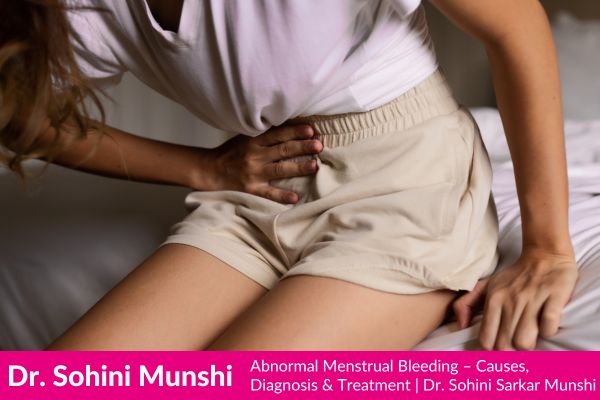Abnormal Menstrual Bleeding: Causes, Diagnosis & Treatment
Abnormal menstrual bleeding (AMB) is a common gynecological concern affecting women of all ages. It refers to any bleeding from the uterus that differs from the normal menstrual cycle in terms of frequency, regularity, duration, or volume. While occasional irregularities are normal, persistent changes may indicate an underlying health issue that requires medical attention.
Causes of Abnormal Menstrual Bleeding
Several factors can contribute to AMB, including:
- Hormonal Imbalances: Fluctuations in estrogen and progesterone can disrupt the menstrual cycle.
- Uterine Fibroids or Polyps: Benign growths in the uterus can cause heavy or prolonged bleeding.
- Endometriosis: A condition where uterine lining tissue grows outside the uterus.
- Polycystic Ovary Syndrome (PCOS): Associated with irregular ovulation and periods.
- Thyroid Disorders: Both hyperthyroidism and hypothyroidism can affect menstruation.
- Pelvic Infections: Infections in the reproductive tract can cause bleeding irregularities.
- Blood Clotting Disorders: Rare conditions that affect the blood’s ability to clot normally.
Symptoms That Need Attention
Seek medical advice if you experience:
- Bleeding between periods
- Very heavy flow requiring frequent pad/tampon changes
- Periods lasting longer than 7 days
- Irregular cycles without a pattern
- Severe cramps with heavy bleeding
- Postmenopausal bleeding
Diagnosis of Abnormal Menstrual Bleeding
A gynecologist may recommend:
- Medical history and physical examination
- Blood tests to check for anemia, hormones, or clotting disorders
- Ultrasound or transvaginal imaging to assess the uterus and ovaries
- Hysteroscopy to view the inside of the uterus
- Endometrial biopsy to rule out cancerous changes
Treatment Options
Treatment depends on the underlying cause and may include:
- Medications: Hormonal therapy, birth control pills, or antifibrinolytics.
- Minimally Invasive Procedures: Laparoscopy, hysteroscopy, or endometrial ablation.
- Surgical Options: Myomectomy for fibroids, or in severe cases, hysterectomy.
- Lifestyle Modifications: Weight management, stress reduction, and balanced diet.
Why Consult Dr. Sohini Sarkar Munshi
Dr. Sohini Sarkar Munshi is one of South Kolkata’s most trusted gynecologists and IVF specialists. With MBBS from Burdwan Medical College, MS from Calcutta National Medical College, and the prestigious MRCOG from the Royal College of Obstetricians & Gynaecologists, London, she brings unmatched expertise in women’s health.
Her specialties include transvaginal imaging, IUI, laparoscopy, and hysteroscopic surgeries. She has extensive experience as an IVF consultant and has presented at major conferences. Her compassionate approach ensures every patient receives individualized and effective care.

